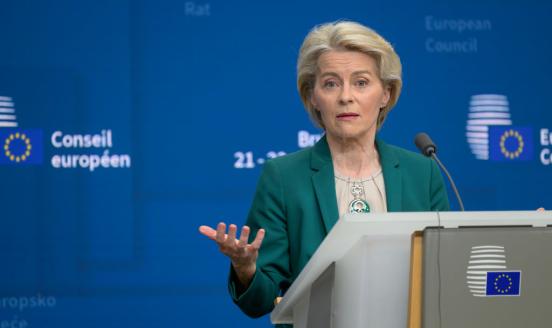Non-public testimony on the Troika's working and the effectiveness of financial assistance programs in the euro area.
- Publishing date
- 05 December 2013
- Authors
- André Sapir Guntram B. Wolff

About the authors
-
André Sapir
André Sapir, a Belgian citizen, is a Senior fellow at Bruegel. He is also University Professor at the Université libre de Bruxelles (ULB) and Research fellow of the London-based Centre for Economic Policy Research.
Between 1990 and 2004, he worked for the European Commission, first as Economic Advisor to the Director-General for Economic and Financial Affairs, and then as Principal Economic Advisor to President Prodi, also heading his Economic Advisory Group. In 2004, he published 'An Agenda for a Growing Europe', a report to the president of the Commission by a group of independent experts that is known as the Sapir report. After leaving the Commission, he first served as External Member of President Barroso’s Economic Advisory Group and then as Member of the General Board (and Chair of the Advisory Scientific Committee) of the European Systemic Risk Board based at the European Central Bank in Frankfurt.
André has written extensively on European integration, international trade and globalisation. He holds a PhD in economics from the Johns Hopkins University in Baltimore, where he worked under the supervision of Béla Balassa. He was elected Member of the Academia Europaea and of the Royal Academy of Belgium for Science and the Arts.
-
Guntram B. Wolff
Guntram Wolff is a Senior fellow at Bruegel. He is also a Professor of Public Policy and Economics at the Willy Brandt School of Public Policy. From 2022-2024, he was the Director and CEO of the German Council on Foreign Relations (DGAP) and from 2013-22 the director of Bruegel. Over his career, he has contributed to research on European political economy, climate policy, geoeconomics, macroeconomics and foreign affairs. His work was published in academic journals such as Nature, Science, Research Policy, Energy Policy, Climate Policy, Journal of European Public Policy, Journal of Banking and Finance. His co-authored book “The macroeconomics of decarbonization” is published in Cambridge University Press.
An experienced public adviser, he has been testifying twice a year since 2013 to the informal European finance ministers’ and central bank governors’ ECOFIN Council meeting on a large variety of topics. He also regularly testifies to the European Parliament, the Bundestag and speaks to corporate boards. In 2020, Business Insider ranked him one of the 28 most influential “power players” in Europe. From 2012-16, he was a member of the French prime minister’s Conseil d’Analyse Economique. In 2018, then IMF managing director Christine Lagarde appointed him to the external advisory group on surveillance to review the Fund’s priorities. In 2021, he was appointed member and co-director to the G20 High level independent panel on pandemic prevention, preparedness and response under the co-chairs Tharman Shanmugaratnam, Lawrence H. Summers and Ngozi Okonjo-Iweala. From 2013-22, he was an advisor to the Mastercard Centre for Inclusive Growth. He is a member of the Bulgarian Council of Economic Analysis, the European Council on Foreign Affairs and advisory board of Elcano.
Guntram joined Bruegel from the European Commission, where he worked on the macroeconomics of the euro area and the reform of euro area governance. Prior to joining the Commission, he worked in the research department at the Bundesbank, which he joined after completing his PhD in economics at the University of Bonn. He also worked as an external adviser to the International Monetary Fund. He is fluent in German, English, and French. His work is regularly published and cited in leading media.
- Language
- English
Related content

The impact on the European Union of Ukraine’s potential future accession
This report evaluates the impact on the EU of a possible EU accession of Ukraine, focusing on economic consequences and institutional developments.

The European defence industrial strategy: important, but raising many questions
The European defence industrial strategy helps to focus thinking but has significant flaws

Stay away from Russian money
The EU would shoot itself in the foot by confiscating Russian assets and giving them to Ukraine

Capital markets union - why now?
What is hindering the EU from achieving a Capital markets union?